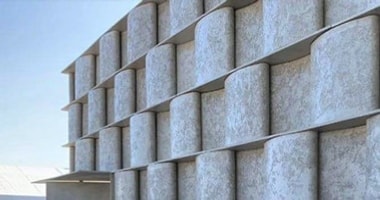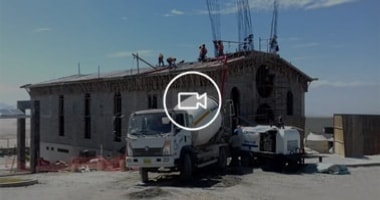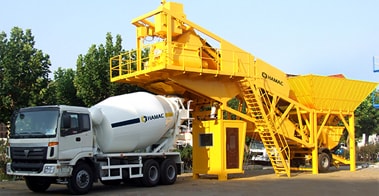 HAMAC 8CBM MIXING DRUM TO GUATEMALA
HAMAC HN938 backhoe loader was delivered successfully to PERU
HAMAC 8CBM MIXING DRUM TO GUATEMALA
HAMAC HN938 backhoe loader was delivered successfully to PERU
pros and cons asphalt vs concrete driveway
1. Cost Disparity:
18cm cement road costs $19.006 per meter, while 18cm asphalt road costs $35.997 per meter.
2. Difference in Driving Comfort:
Asphalt road allows speeds up to 130 mph, whereas cement road permits only up to 100 mph.
3. Structural Differences:
Cement road: rigid structure, strong bending resistance, long construction period, long lifespan, but high repair difficulty and cost.
Asphalt road: flexible structure, shorter construction period, shorter lifespan, lower repair difficulty and cost.
4. Environmental Impact:
Cement road construction emits large amounts of carbon, causing significant environmental pollution.
Asphalt road construction generates relatively minor pollution, with a milder environmental impact.
5. Regional Suitability:
Cement road adapts well to various climates but may crack in extreme temperatures.
Asphalt road performs better in hot climates but may crack in cold regions.
6. Durability:
Cement road has a longer lifespan and can withstand heavier vehicles but incurs higher maintenance costs.
Asphalt road has a relatively shorter lifespan but lower maintenance costs.
7. Impact on Driving Safety:
Cement road may cause uneven surfaces, reducing driving safety due to vibrations.
Asphalt road offers smoother surfaces, resulting in less impact on driving safety.
8. Construction and Maintenance Differences:
Cement roads require frequent maintenance with high repair difficulty, while asphalt roads have simpler maintenance with lower repair costs.
9. Noise Reduction Effect:
Asphalt roads have better sound absorption properties, reducing vehicle noise pollution compared to cement roads.
10. Skid Resistance:
Asphalt roads offer better skid resistance in wet conditions compared to cement roads.
11. Performance Degradation:
Cement roads exhibit slower performance degradation over time compared to asphalt roads.
12. Soil Conservation Impact:
Cement roads have a significant impact on soil, leading to drying and degradation, while asphalt roads have a lesser impact.
13. Performance in Rainy and Snowy Weather:
Asphalt roads adapt well to rain and snow, improving driving safety. Cement roads are prone to water accumulation and ice formation, increasing the risk of accidents.
14. Adaptability to High Temperatures in Summer:
Asphalt roads maintain their integrity better in high temperatures compared to cement roads, reducing the risk of accidents.
15. Effect on Road Color:
Asphalt roads with darker colors absorb more sunlight, accelerating snow melting, while cement roads with lighter colors impede snow melting, affecting driving safety.
16. Response to Large Vehicles:
Cement roads can better withstand the pressure of heavy vehicles, facilitating transportation, whereas asphalt roads may sink and deform under heavy traffic.
17. Environmental Considerations:
Cement production releases a significant amount of CO2, negatively impacting the environment, while asphalt production is relatively more eco-friendly.
18. Cost Difference in Regular Maintenance:
Cement roads incur higher maintenance costs, while asphalt roads are more economical to maintain.
19. Impact on Driving Safety:
Cement roads pose safety hazards like water accumulation and slipping in rainy/snowy weather, while asphalt roads offer better anti-skid properties.
20. Choice in Urban Planning:
Selection between cement and asphalt roads depends on urban planning, traffic volume, and other factors, necessitating a comprehensive evaluation for a suitable choice.
21. Drainage Efficiency in Rainy Weather:
Asphalt roads have smoother surfaces, facilitating efficient drainage, while cement roads may experience water accumulation, affecting road durability and safety.
22. Bearing Capacity During Natural Disasters:
Cement roads exhibit stronger bearing capacity during earthquakes, offering better resistance to geological changes, while asphalt roads are more vulnerable to damage.
23. Aesthetic Differences:
Asphalt roads have smoother, vibrant surfaces, offering better visual appeal compared to the rougher, duller appearance of cement roads.
24. Difficulty in Long-term Maintenance:
Cement roads are prone to cracking and damage over time, requiring extensive and costly repairs, while asphalt roads have simpler and cheaper repair processes.
25. Impact on Reducing Fuel Consumption:
Asphalt roads with smoother surfaces and less resistance contribute to lower vehicle fuel consumption compared to cement roads.
26. Dispersion Effect Under Atmospheric Pollution:
Asphalt roads have better scattering effects, reducing dust and particulate matter in the air compared to cement roads.
27. Construction Impact on the Surrounding Environment:
Cement road construction leads to dust and noise pollution, affecting residents' quality of life, while asphalt road construction has a lesser environmental impact.
28. Driving Comfort During Use:
Asphalt roads offer better driving comfort due to smoother surfaces, reducing driver fatigue compared to the bumpy surfaces of cement roads.
29. Adaptability to Climate Change:
Cement roads are more susceptible to climate effects like freezing, thawing, and cracking, whereas asphalt roads exhibit better stability under varying climatic conditions.
30. Convenience in Road Debris Cleaning:
Asphalt roads with smoother surfaces are easier to clean and maintain compared to cement roads, where debris can be trapped in surface irregularities.
31. Differences in Rainwater Drainage:
Asphalt roads facilitate efficient rainwater drainage due to their smooth surfaces, while cement roads may experience water pooling, impacting road safety and durability.
32. Impact on Ecological Environment:
Cement roads' hardening effect increases surface runoff, affecting nearby natural ecosystems, whereas asphalt roads' flexible design better protects roadside vegetation and ecosystems.
33. Differences in Road Durability and Lifespan:
Cement roads have stronger durability and longer lifespans but higher maintenance costs, while asphalt roads have relatively shorter lifespans but lower maintenance costs.
34. Differences in Pedestrian Convenience:
Asphalt roads with smoother surfaces and vibrant colors offer more comfortable and convenient pedestrian passage compared to the rougher, less appealing cement roads.
35. Anti-skid Performance in Rainy Conditions:
Asphalt roads demonstrate better anti-skid performance, reducing the probability of accidents during rainy weather, while cement roads pose higher safety risks.
36. Periodic Maintenance Requirements:
Cement roads necessitate regular inspections and maintenance with longer maintenance cycles, while asphalt roads offer simpler maintenance with more flexible periodic requirements.
37. Effectiveness in Reducing Traffic Noise:
Asphalt roads' sound absorption properties reduce vehicle noise pollution, enhancing residents' living environment, whereas cement roads may generate more road noise.
38. Differences in Reducing Vehicle Energy Consumption and Emissions:
Asphalt roads' smoother surfaces contribute to lower vehicle energy consumption and emissions compared to cement roads.
39. Convenience in Underground Pipeline Maintenance:
Asphalt road construction minimally interferes with underground pipelines, facilitating easier maintenance compared to cement road construction.
The choice between cement and asphalt roads requires comprehensive consideration of factors such as regional climate, traffic flow, construction costs, maintenance cycles, etc., to enhance road usability and safety.
There is no lowest price, only lower price. You get what you pay for. We hope you are looking for the perfect working performance of the equipment, not the low-priced inferior goods. HAMAC only provide our clients with high quality machines. Wish a cooperation with you in the future.







